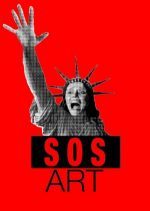“One of my priorities is health care for all,” says Don Rucknagel. “I have been a member ofPhysicians for a National Health Program (PNHP) now for over 50 years and of Single Payer Action Network (SPAN) of Ohio for over 15 years.”
Rucknagel in fact believes that accessible and affordable health care is an individual’s human rights and that it is society’s responsibility to make it available and free to everyone. Being a physician who devoted all his life to treating predominantly African American patients suffering from sickle cell disease, he knows quite well the debilitating problems that patients face when they are unable to seek needed care due to either their disadvantaged socioeconomic condition or the high cost of their treatment.
Rucknagel grew up in St. Louis, MO, in a non religious family. His parents, however, allowed one of their acquaintances to take him and his brother regularly to Sunday school at the downtown Grace Lutheran church. He was baptized there and stayed with the Lutheran faith for a good part of his life.
Successful in high school he was given a scholarship to attend Washington University in St. Louis, obtained a Bachelor’s degree in Chemistry and Biology and proceeded to Medical School at the same University to become a Medical Doctor in 1954.
At Washington University he was active in the Lutheran student fraternity to which he belonged; also enrolled in ROTC (Reserve Officer Training Corps), the college program that prepares young adults to become officers in the US Military. Through this program he got the grade of 2nd lieutenant in the Air Force artillery, and attended once a summer training camp at Fort Bragg, NC; this was, however, all his active exposure to the armed forces.
After completing medical school, Rucknagel went to Duke University for his medical residency, the University of Pittsburgh for a fellowship in Hematology, then returned to St. Louis on the medical staff of the University. Now married and interested in the genetics of Sickle Cell disease he moved, few years later, with his wife, to Ann Arbor, to join the group of James Neele, the prominent American geneticist, then Chairman of the Department of Human Genetics at the University of Michigan.
“Initially planned for 2 years, our stay in Ann Arbor lasted much longer,” says Rucknagel. “I ended up obtaining a PhD degree in human genetics and served for many years on the faculty of the medical school.”
While in Ann Arbor, the American Vietnam war started, initiated by orders of President Johnson to bombard North Vietnam; it was March 1965. In view of the misinformation presented by the administration to justify their involvement and the resulting massive drafting of Americans in the war, a group of history and political science professors from the University of Michigan offered a series of teach-ins to inform the public about the real issues, situation and problems, relating to Vietnam. Rucknagel and his wife attended.
“It became clear to us that all the American and Vietnamese deaths were unjustified, and that the reasons given for the violence and extensive destructions were only based on lies and only to profit the powerful military industrial complex,” says Rucknagel.
Revolted and committed to become an antiwar activist, Rucknagel soon discovered a local antiwar group called “Interfaith Council for Peace”, founded by a rabbi and a Disciple of Christ minister’s wife, Barbara Fuller. He and his wife joined the group and also started attending the Disciples of Christ Church led by Barbara’s husband.
“Since our arrival to Ann Arbor we had gravitated around Lutheran liberal congregations,” he states. “But the members of the Lutheran church we were attending at the time were fighting with the pastor and with each other, so we decided to leave.”
The Rucknagels’ participation in the Interfaith Council for Peace was fruitful as they lobbied legislators, picketed, marched, joined anti draft protests in the street and helped organize the resistance to war of young students on campus.
“The war of Vietnam was like a flash of light in the darkness to me,” says Rucknagel. “It brought a much needed social and political awakening, exposing the military industrial complex, the role of arms manufacturing, the influence of retired generals who are recycled in the system and become pro-war consultants to the Congress….”
It also brought to the Rucknagels a strong exposure to the social message of the gospel, and to the important role of faith as a promoter of justice in this world.
In 1987, Rucknagel was offered the direction of the Sickle Cell Center at Children’s hospital in Cincinnati and he and his family moved there. Wanting to continue his involvement in peace and anti war activism, he looked for a church which would offer such a venue.
“We were directed to the Mount Auburn Presbyterian church which was led then by Harold Porter, a progressive minister,” says Rucknagel. “The congregation, however, was wrapped up in fighting the Presbytery regarding the ordaining of gays and lesbians and I participated in the fight, but also continued looking for other anti war platforms.”
Soon Rucknagel was serving on the IJPC (Intercommunity Peace and Justice Center) peace committee working with their Justice Seeking group. But looking for a more specific focus on war and peace, he decided to join the Religious Society of Friends, aka Quakers; this was 5 years ago.
“I found the Quakers to be religious and scriptural, and also with a strong anti war stand,” he says. “They have a peace and social concern committee and I am its clerk.”
Rucknagel continued all along his various social justice and peace activities. He helped with the passing of the Amos Project’s Preschool promise that allows children to attend affordable quality preschool. Believing in Obama’s platform for change, he canvassed for his election, going door to door downtown Cincinnati, encouraging and inviting people, mostly African-Americans, to register to vote. In 2010, however, disappointed by Obama’s handling of the 2008 economic crisis and his appointment of Timothy Geithner and Lawrence Summers to solve it and whose solution was to bail the banks, he left the Democratic party and joined instead the Green one.
“I currently serve on both the Hamilton County and the sate of Ohio coordinating committees of the Green Party,” he says, “also involved in their national affairs.”
But most of Rucknagel’s latest efforts have been directed toward advocating for a single payer health care system for all, working closely with SPAN Ohio.
“SPAN proposes the establishment of a public fund that would pay for everyone’s health care bills without co-payments or deductibles,” says Rucknagel. “Funding would come from the savings realized by eliminating the administrative waste and profits of the many private insurance companies and HMOs, savings from greater utilization of preventive medicine, and from additional mechanisms (such as reasonable sales tax) to ensure the necessary financial resources.”
In Ohio, policy would be determined by a board of 14 individuals from the different counties, chaired by the director of Ohio Department of Health. Rucknagel served twice on its Executive Committee and he is very active lobbying for the passing of its house bill HB 440 and senate bill SB 91. To that effect he meets regularly with representatives explaining the why and how of the bill, pointing to its advantages for their constituency. When I met with him he had an appointment the next morning with Louis Blessing III, Republican member of the Ohio House of Representatives. Blessing III being very interested in small businesses affairs, Rucknagel intended to illustrate the advantages of the SPAN proposal to small businesses who currently cannot afford expensive health care coverage for their employees who, as a result, leave employment prematurely due to lack of benefits. He had also met with Tom Brinkman, Jr. also a Republican member of the Ohio House of Representatives from Cincinnati, for the same reasons.
Rucknagel is also very involved in helping raise funds to support the operation and success of SPAN Ohio, as he believes that proofs of feasibility and of success of the program need to be demonstrated first at the level of the state before the program is generalized nationwide.
Universal health care and the elimination of wars have been all along two very important issues for Rucknagel, and he will continue fighting for them as long as he lives. He thinks it is also urgent to reduce significantly and quickly our military budget, at the risk, otherwise, of seeing our planet disappear.
When asked about the role his faith has played in his many activist commitments, Rucknagel is quick to reply:
“My faith has always been and will always remain my strong ally and an essential support in my various peace and social justice activities.”
Texts from Friends' meetings and from Friends leaders' writings about Peace and Justice "From its earliest days the Religious Society of Friends has held that war is contrary to the spirit, the life and the teachings of Jesus, who renounced the weapons of worldly passion and used the methods of love and self-sacrifice in their place." "There is that of God in all people, and we believe each person has equal access to the divine. This fundamental belief led Friends to appreciate women’s spiritual gifts and to reject practices designed to maintain distinctions among social classes. Friends came to recognize that no one could justly hold another in slavery. We are also coming to realize how such unjust inequities are maintained by an unequal distribution of wealth and resources..." "Ongoing exploitation of the Earth’s resources threatens the delicate ecological balance that sustains the current web of life. Friends find unity around the principle of sustainability as a basic standard for responsible living..." (from Ohio Valley Yearly Meeting Faith and Practice) "(Our gracious Creator's) tender mercies are over all his works; and so far as his love influences our minds, so far we become interested in his workmanship and feel a desire to take hold of every opportunity to lessen the distresses of the afflicted and increase the happiness of the creation." “To say we love God as unseen and at the same time to exercise cruelty toward the least creature moving by his life ... is a contradiction in itself.” (John Woolman, 1763) "We are a people that follow after those things that make for peace, love and unity; it is our desire that others' feet may walk in the same, and do deny and bear our testimony against all strife, and wars, and contentions that come from the lusts that war in the members, that war in the soul, which we wait for, and watch for in all people, and love and desire the good of all..." (Margaret Fell, 1660)
Religious Peacemakers is a regular column published in Streetvibes; it highlights Greater Cincinnati individuals who use their faith and religious beliefs for peace and justice and for a better world.
It is authored by Saad Ghosn, founder and president of SOS (Save Our Souls) ART.



November 21, 2018 at 3:07 am
Another great and inspiring person, with such an interesting path in life!
The article made me search and read more about the Quakers and find out about their particular efforts in promoting social justice in Cincinnati and elsewhere…
LikeLike
November 21, 2018 at 3:44 pm
tx PC once more for ur positive comments!! pls also read the article on deborah jordan and bill cahalan published a year ago and which includes an insert on the Quaker faith.
https://sosartcincinnati.wordpress.com/2017/09/22/listening-to-the-spirit-deborah-jordan-bill-cahalan-work-toward-a-sustainable-peaceful-earth-holistic-mental-health/#more-460
LikeLike